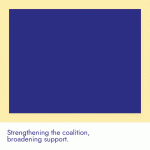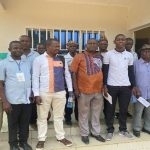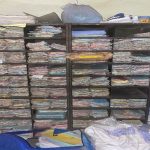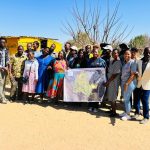Namibia
The overall rationale of GLTN’s engagement in Namibia is to support partners in Namibia in efforts to improve security of tenure of Namibians, with particular focus on poor and marginalised communities. This has involved supporting the establishment and implementation of Namibia’s Flexible Land Tenure System (FLTS); as well as technical support and the provision of innovative pro-poor and gender responsive land tools, in particular Participatory Enumeration and the Social Tenure Domain Model. To date the main emphasis has been on city and small town informal settlements, as the relevant legislation, the Flexible Land Tenure Act (FLTA) does not in its current form pertain to rural areas. Through UN-Habitat, GLTN has been involved in the drafting of Regulations for the FLTA, as well as a process of clarifying the FLTA process with the stakeholders and laying the foundation for piloting, in particular in Gobabis Municipality.
The fact that various GLTN partners have been active in Namibia has greatly contributed to the viability of the offered support. These include UN-Habitat (technical support); GIZ (Support to the Land Reform Programme by the German Federal Ministry for Economic Cooperation and Development); Shack Dwellers International (through grassroots work by the Namibian Housing Action Group and the Shack Dwellers Federation of Namibia); the Association of African Planning Schools (via the Department of Architecture and Spatial Planning and the Namibia University of Science and Technology). Progress with the FLTS has included the establishment of an FLTS Steering Committee; further work towards finalisation of the FLTA Regulations; production of a pre-final draft of the FLTA Regulations; and the identification of FLTA pilot sites at Windhoek, Gobabis, Oshakati and Outapi. The Steering Committee was formed by agreement between the Ministry of Land Reform (MLR) and the Ministry of Urban and Rural Development (MURD).
Implementation of the Social Tenure Domain Model to document land rights of Freedom Square community and as a trial for the upscaling of FLTS was concluded in December 2016. This engagement as reported by NHAG has been very positive in organizing the community and in building their capacity to participate in issues affecting them within their settlements. As an outcome of the re-blocking processes and priority needs identified after analysis of data collected by community members themselves, Freedom Square now boasts of water services/ points installed with financial support from the Ministry of Urban and Rural Development. Building on this work, discussions are underway with partners on the potential application of the Social Tenure Domain Model as part of the future computer-based registration system for the FLTS.
Conditions for the certificates of occupancy were discussed by both the community and Gobabis municipality during the course of project implementation and it was agreed that certificates will act as proof for occupying the land, though not as formal deed to transfer land ownership. This latter step will have to wait for application of the FLTS, when it becomes operational. The finalized layout caters for one thousand and ninety seven (1097) residential plots. Out of this number, one thousand and thirty three (1033) occupants have been cleared to receive their certificates.
As a pilot, Freedom Square has laid groundwork for the upgrading of other settlements and has also shown how a community-driven upgrading process can bring about successful improvements an informal settlement. Additionally, the relationship between the Gobabis Municipality and local residents has greatly improved through meaningful dialogue between the two partners aimed at improving the living conditions in the settlement; for instance the Gobabis Municipality provided office space during data entry.
A GTLN technical team has also trained community enumerators, staff from NHAG including GIS specialists from a GIS service company based in Windhoek that supports NHAG, as well as the Gobabis municipality officials on the STDM. Experiences from Gobabis continue to show STDM’s capability as a progressive land tool that provides an innovative approach to strengthening tenure security for the majority of people, especially the poor and marginalized.






